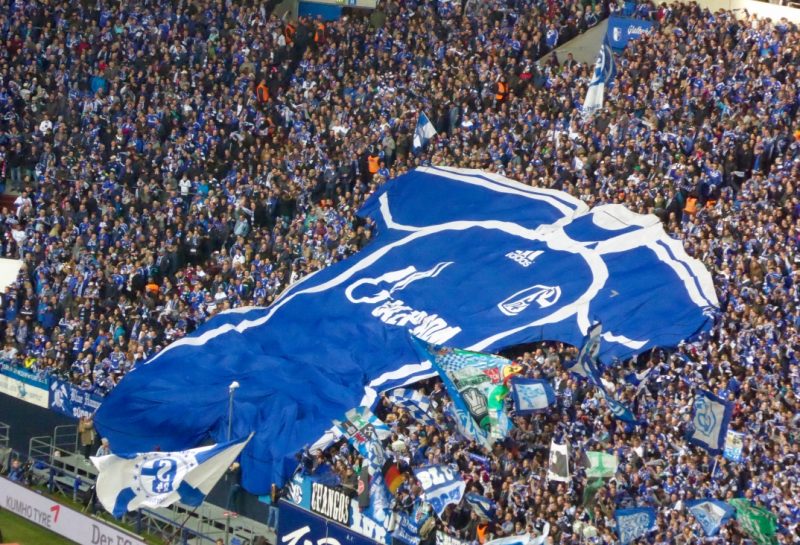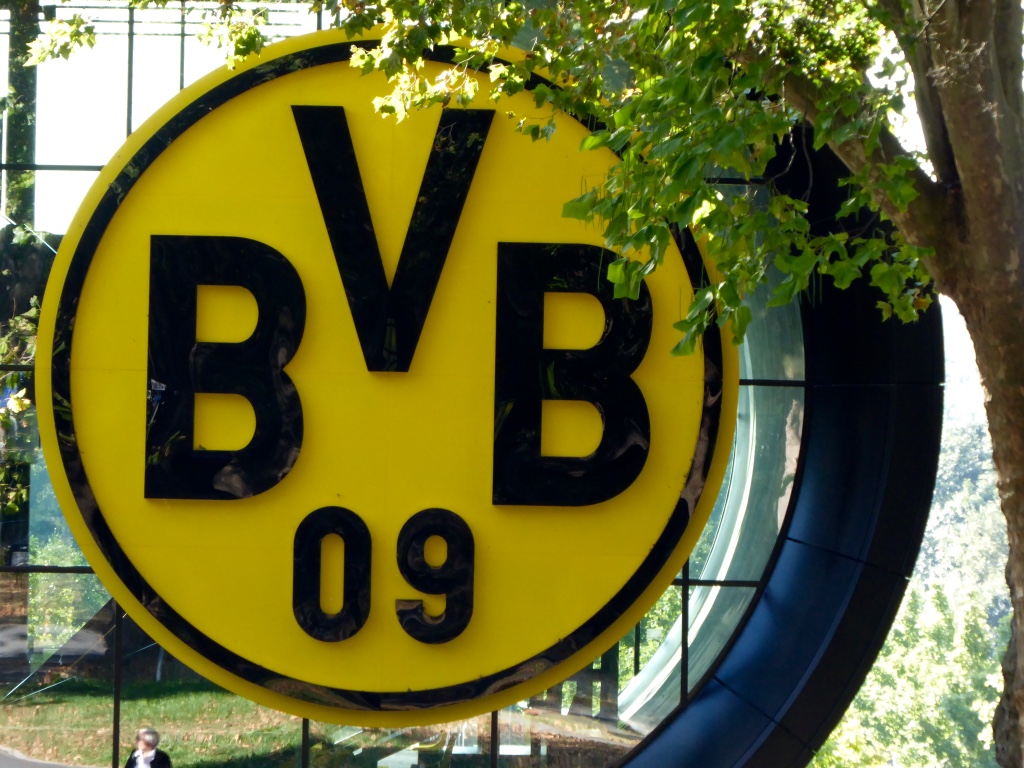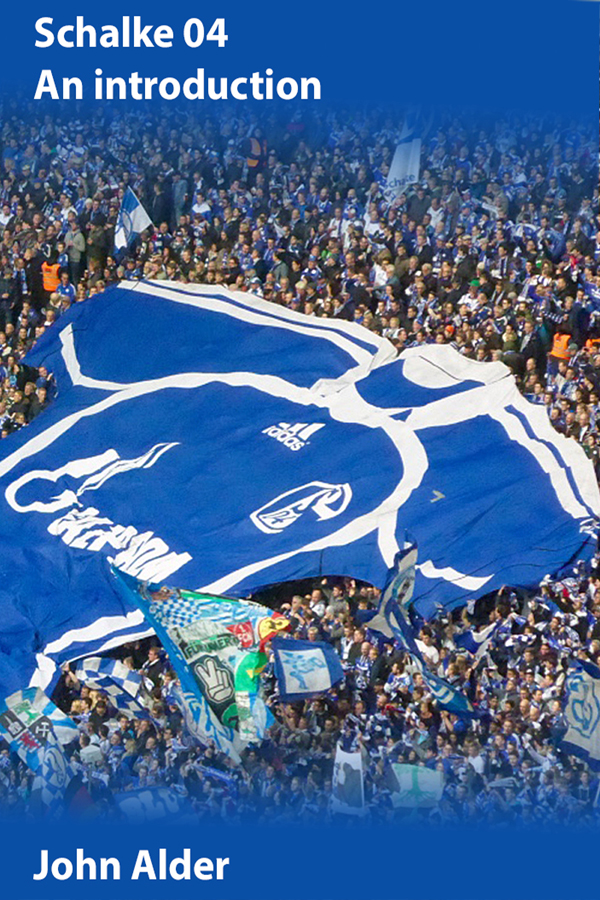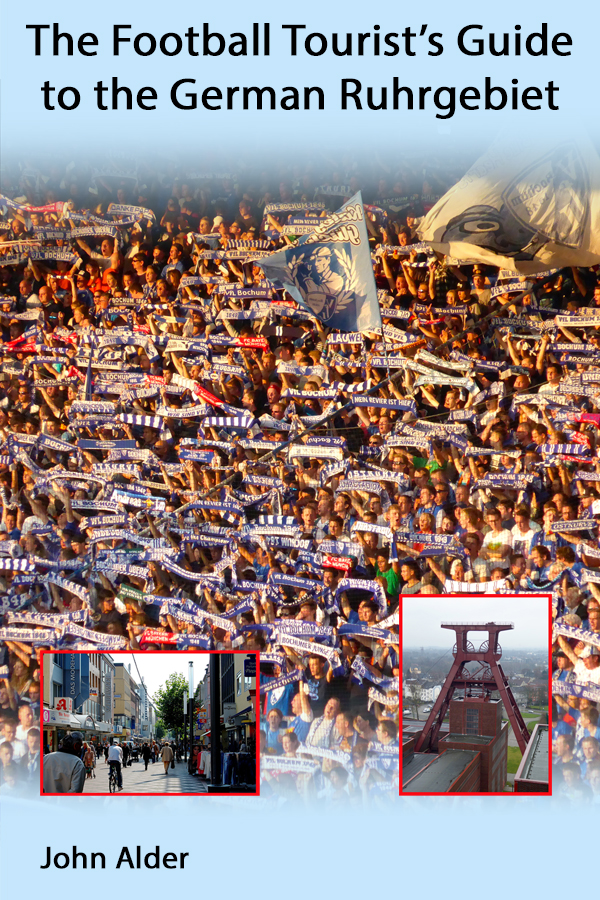
The Ruhrgebiet has more football clubs than any other part of Germany. It also has more pubs where people gather to talk about football before and after the game. So it’s not surprising that every there is a fiercely contested derby somewhere in the Ruhrgebiet every weekend. Tens of thousands of fans will turn out to see fourth tier clashes between clubs like Rot-Weiß Essen, SG Wattenscheid and Rot-Weiß Oberhausen.
And the biggest derby of all – the Revierderby – is the clash between FC Schalke 04 and Borussia Dortmund.
The rivalry between these two massive clubs is one of the strongest in football, pitting neighbour against neighbour and workmate against workmate. Games are eagerly anticipated, always sold out, watched in homes and pubs across the region, and argued about for months before and after.

Schalke fans mock Dortmund by calling it Lüdenscheidt Nord – the nearest small town.
Dortmund fans return the favour by talking about Herne instead of Schalke.
Fans refuse to refer to their rivals’ city by name, using instead the expression ‘die verbotene Stadt’ – ‘the forbidden city’. They try to avoid going there (except, of course, on match days) and if you do happen to say the taboo words by mistake, it’s considered as bad as swearing. Indeed, in some pubs and fan clubs, you have to pay a fine into the ‘swear box’.
Each set of supporters has an extensive repertoire of insulting songs about their rivals. Sometimes the rivalry can lead to quite dangerous situations. There have been examples of fans being set upon and of scarves and flags being stolen. Recently, Dortmund fans fired a rocket into a stand full of Schalke fans.
Over 3,000 police and 1,000 security staff are required to maintain order at the grounds, and for hours before and after games, police maintain a massive presence in the towns and on public transport.
You would expect a degree of competition between two of the biggest clubs in Germany, who also happen to be close neighbours. Just why the animosity is so intense is harder to explain. My view, for what it’s worth, is that it’s because the clubs are so similar.
Both have a long and proud history, emerging from similar working-class communities to become the dominant clubs in the region and two of the biggest, best-supported in the country.
The rise of both clubs was linked to the rapid expansion and industrialisation of the Ruhr region. In the tough early years of the twentieth century, football became hugely important in the area, partly because it offered a sense of belonging and identity to newly arrived migrants and relief from the hardship of work in the mines and steelworks. This meant not only that both clubs had a large fan base, but that the passion and loyalty of these fans were intense and extreme.
Both communities experienced the same economic decline through the later years of the century, as the heavy industries died and the large factories closed. In those years, football was considered by many to be the only positive thing going. People say that without BVB, no-one would have heard of Dortmund – and that Schalke is more famous than its hometown of Gelsenkirchen.
Both communities are still fiercely proud of the Ruhrgebiet’s industrial past, and still, recognise the workers who built their clubs. For example, before games at Schalke, everyone rises (almost as if in church) to sing ‘das Steigerlied’ – the miners’ song – while old black and white footage of men working in the pits is shown on the big screen.
So supporting either club is about more than following a game. It defines who you are. People say, for example, that they were ‘born Schalke’ or ‘born Dortmund’ just like you might say you were born British. Loyalty to your club is also loyalty to your family, neighbours and community.
It is therefore not surprising that the atmosphere in and around derby games is so hot.
If you want to learn more, the documentary “A Feeling Deeper Than Hate” explains the rivalry between the two sets of fans brilliantly.


